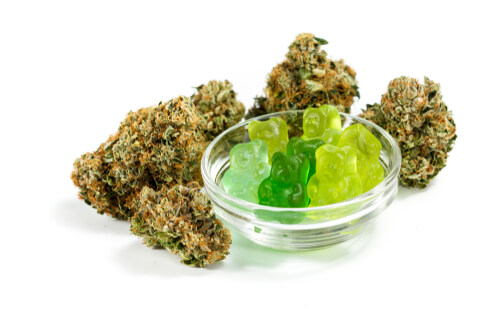
More and more people are relying on cannabis derivatives such as CBD for acne, psoriasis and rosacea. Why? Because there is more demand for those products derived from cannabis for skin health conditions. However, researchers say that there is not enough scientific evidence about the power and safety of cannabis derivatives.
When over 500 grown-ups were asked regarding marijuana or cannabidiol, 17.6% of them stated they consumed an OTC cannabis derivative for acne, rosacea, eczema or psoriasis. The term OTC refers to a medical product available with no prescription from a doctor, which is a dermatologist in this case.
Cannabidiol is an industrial hemp derivative with no euphoric effect. On the other hand, THC contributes to the high effect of marijuana. As per study author Adam Friedman, people use cannabis derivatives with no doctor’s recommendation, and even people who do not use these are keen on learning more about them. Friedman heads the dermatology department at the DC-based George Washington University School of Medicine and Health Sciences. Friedman stated that science should catch up with the demand for cannabis derivatives.
There is some promising information from animal research suggesting how these items may aid in treating inflammatory skin disorders. As for Friedman, it is known that cannabinoids make the resolving pathway in the body active. The pathway resolves inflammation. Friedman reckons that cannabinoids not only make the resolution of inflammation possible but also recruit the factors that play an essential part in cleaning up inflammatory damage.
As per around 89% of people who participated in the study, cannabis derivatives have a part to play in treating skin diseases. A majority of them stated that they would have the willingness to use one of those cannabis products if they get the approval of their dermatologists to do so.
Cannabis Is Not Regulated
Up to 20% of the participants who had been to dermatologists, were advised to use a product with CBD for psoriasis and acne. Around 8% of those people used medical marijuana, which necessitates proof of approval of a dermatologist.
That said, Friedman urges caution with regard to products such as cannabidiol, since the FDA does not regulate them like how it regulates drugs. Medical marijuana necessitates a prescription card from a doctor and is buyable only from a state-run dispensary.
To determine whether a cannabidiol item is safe, Friedman recommends checking the third-party laboratory test result that comes with it and offers information about its ingredients.

